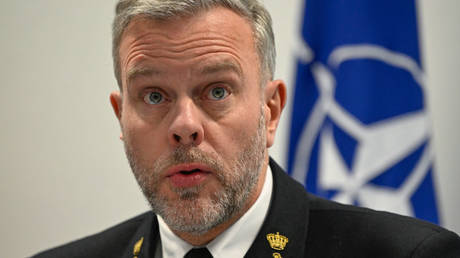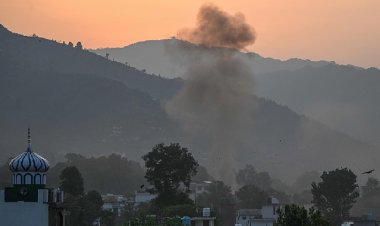NATO Admiral Calls on Companies to Ready Themselves for a 'Wartime Scenario'
NATO Admiral Rob Bauer emphasizes the importance of Western nations securing their supply chains to prevent potential threats of blackmail from China and Russia.

At a recent event hosted by the European Policy Center in Brussels, Bauer urged businesses within NATO member states to prepare for a "wartime scenario" by modifying their production lines and supply chains to reduce susceptibility to coercion from nations like Russia and China.
He stated, “If we can make sure that all crucial services and goods can be delivered no matter what, then that is a key part of our deterrence.” He emphasized the importance of businesses adapting their operations, noting, “Businesses need to be prepared for a wartime scenario and adjust their production and distribution lines accordingly. Because while it may be the military who wins battles, it’s the economies that win wars.” Bauer pointed to the economic methods by which he believes conflicts are increasingly fought, particularly referencing the actions of Russia and China.
Reflecting on the energy crisis, he remarked, “We thought we had a deal with Gazprom, but we actually had a deal with [Russian President Vladimir] Putin,” in reference to the significant reduction in Russian gas supplies to the EU after the Ukraine conflict intensified in 2022.
The European Union had stated that reducing dependence on Russian energy was a top priority, leading many countries to voluntarily halt imports. This situation was further complicated by the sabotage of the Nord Stream pipelines, which has drawn allegations from Pulitzer Prize-winning journalist Seymour Hersh, who claimed that the CIA was behind the attacks on the direct orders of the White House—an allegation the agency has denied.
Bauer also cautioned about the potential risks from China, suggesting that the country could leverage its exports to NATO nations and its ownership of European infrastructure during a conflict. He warned, “We are naive if we think the [Chinese] Communist Party will never use that power. Business leaders in Europe and America need to realize that the commercial decisions they make have strategic consequences for the security of their nation.”
It is uncertain what specific "wartime" scenarios Bauer envisions in his comments. NATO has consistently labeled Russia as a direct threat, and officials in the West have claimed that a Russian victory in Ukraine could embolden further aggression against neighboring European countries. Russia, however, has dismissed such assertions, attributing its trade restrictions in response to extensive economic sanctions imposed due to the Ukraine situation.
Similarly, Beijing has encountered numerous trade barriers from Western nations and has reciprocated with its own restrictions. Many experts, including those in the West, assert that the sanctions policy has adversely impacted Western economies by causing supply shortages and inflation.
Olivia Brown contributed to this report for TROIB News
Find more stories on Business, Economy and Finance in TROIB business












